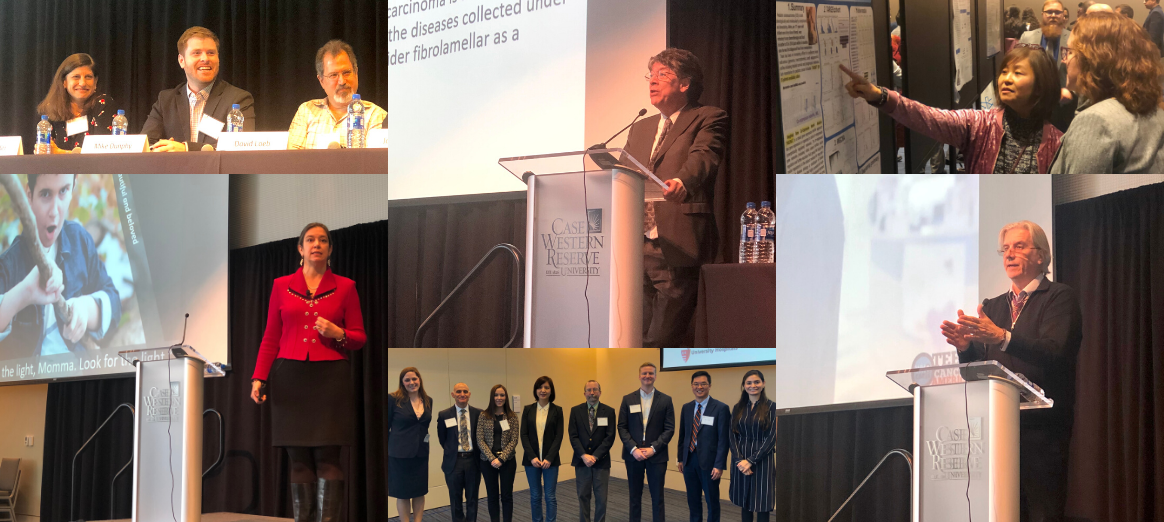Last month, the Case Comprehensive Cancer Center welcomed nearly 150 people to campus for the "Innovators in AYA Cancer: Driving Science and Policy toward a Brighter Future for Teens and Young Adults with Cancer" symposium.
Throughout this day and a half event, research findings and scientific discoveries were punctuated by candid and emotional stories from patients, caregivers and advocates, all with the message that we need to continue to devote our time to better understand the underlying biology of AYA cancers, develop more effective treatments and address stagnant survival outcomes.
There were definite threads of commonality that developed throughout the program. The need for more basic research on the elemental mechanisms of cancers common in this population was often discussed. A session on therapy resistance and metastasis in sarcoma raised interesting and important questions about the possibility of translating novel therapeutics first tested for efficacy in canines to new therapeutic trials for humans or the possibility of using mathematical models to develop opportunities for adaptive therapies. These presentations highlighted the potential of applied genomics and computational biology to uncover new disease mechanisms, the ongoing effort to create model systems that more faithfully model the human disease and the potential of novel immunotherapy strategies for sarcomas.
Many speakers touched upon the importance of the collection of diverse genomic information to drive more effective treatments and precision medicine. The involvement of patients is key for this step to be successful - trust is difficult to build, but can result in long-lasting, valuable relationships. For many, the giving of genomic information is about trying to gain control over their disease. Elana Simon, a recent college graduate, cancer researcher and rare cancer survivor, stressed the need for patients to participate in research, ask questions and share information with others. Theresa Beech, caregiver, advocate, genomics researcher and engineer discussed the power of genomics, stating the collection of genetic data should be the standard fo care and collected before chemotherapy.
The role that patients, caregivers, health professionals, researchers and institutions can play in advocacy and education was also heavily discussed. Legislative efforts are enhancing incentives for the pharmaceutical industry to create opportunities for AYAs to participate in early phase clinical trials, but cancer centers like ours will need to pave the way for these collaborations to be successful.
The sense of urgency to create better outcomes was also underscored by the need to treat the whole patient, not only through treatment but survivorship.
The AYA space is a close-knit one in which we are proud to be leaders and we are lucky to have a cancer center director who recognizes the importance of supporting AYA research.
We are all partners in changing outcomes.
John Letterio, MD and Alex Huang, MD, PhD
Co-Chairs, Planning Committee, Innovators in AYA Cancer Symposium


